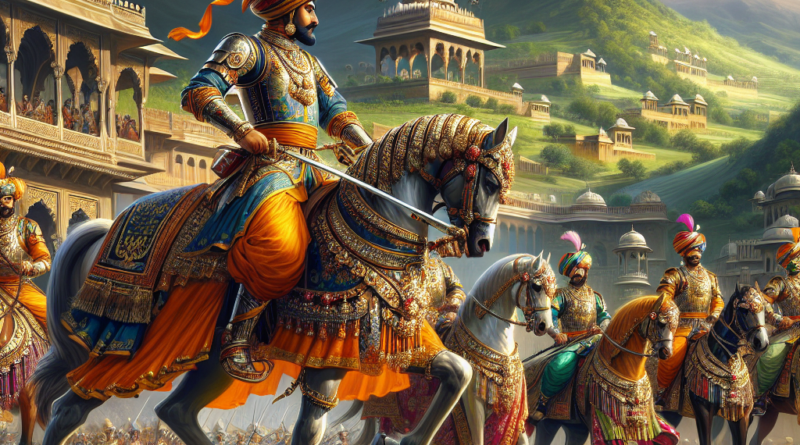The Fearless Rajput Warriors of Ancient India
Title: The Valor and Legacy of Indian Rajput Warriors: Exploring Hindu and Rajput Cultural Significance
Introduction:
The Indian Rajput warriors have long been celebrated for their indomitable valor, unwavering loyalty, and steadfast commitment to honor and duty. Rooted in the rich tapestry of Hindu and Rajput culture, the legacy of these warriors continues to evoke awe and admiration to this day. In this article, we delve into the historical context and cultural significance of Indian Rajput warriors, exploring their enduring impact on Indian history and society.
Historical Context:
The origins of the Rajputs can be traced back to ancient India, particularly during the early medieval period when various Rajput dynasties emerged across the Indian subcontinent. The term “Rajput” is believed to have originated from the Sanskrit word “Rajputra,” meaning “son of a king.” Rajputs were known for their martial prowess, chivalry, and code of honor, which formed the cornerstone of their identity and ethos.
Rajput warriors played a pivotal role in shaping the course of Indian history through their military exploits and valor on the battlefield. From defending their kingdoms against foreign invasions to forging alliances and expanding their territories, Rajput rulers left an indelible mark on the political landscape of medieval India. Their tales of courage and sacrifice became legendary, inspiring generations of warriors and poets alike.
Cultural Significance:
Hinduism, with its emphasis on dharma (duty), karma (action), and honor, provided the spiritual and moral framework for the Rajput ethos. Rajputs were staunch defenders of their faith and traditions, often viewing themselves as protectors of Hindu dharma against external threats. The Rajput code of honor, known as “Rajputana,” emphasized loyalty to one’s clan, courage in battle, and integrity in all dealings.
The Fearless Rajput Warriors of Ancient India
The Rajput warrior ethos was closely intertwined with the concept of “kshatriya dharma,” the duty of the warrior class to uphold righteousness and protect the weak. Rajputs were expected to embody the virtues of valor, generosity, and selflessness, setting a high standard for noble conduct in society. Their adherence to these principles earned them respect and admiration from both allies and foes alike.
The legacy of Rajput warriors continues to resonate in contemporary Indian society, serving as a source of inspiration and pride for many. Rajput pride and identity are often symbolized by their distinctive attire, weaponry, and symbols of honor, such as the tilak (forehead mark) and the Rajputana sword. Rajput festivals and rituals, such as Holi, Diwali, and Dussehra, are celebrated with great fervor and reflect the enduring cultural heritage of the Rajput community.
Contemporary Relevance:
In modern India, the legacy of Rajput warriors continues to be honored and commemorated through various means. Rajput regiments in the Indian armed forces carry forward the martial traditions of their ancestors, upholding the values of courage, discipline, and sacrifice. Rajput leaders and politicians often invoke the spirit of Rajputana pride and valor in their rhetoric, appealing to sentiments of heritage and identity.
The influence of Rajput culture can also be seen in popular media, literature, and art, where Rajput warriors are depicted as symbols of courage and honor. Films, novels, and television shows often portray Rajputs as noble heroes who embody the virtues of loyalty, bravery, and integrity. This enduring fascination with Rajput history and culture underscores the continuing relevance of their legacy in contemporary Indian society.
Conclusion:
The Indian Rajput warriors occupy a special place in the annals of history, embodying the timeless virtues of honor, courage, and duty. Rooted in Hindu and Rajput cultural traditions, their legacy continues to inspire and captivate people across generations. As guardians of a proud heritage, Rajputs serve as a reminder of the enduring power of courage and sacrifice in the face of adversity. Their stories of valor and chivalry will forever remain an integral part of India’s cultural tapestry, preserving the noble ideals of the Rajput warrior ethos for posterity.

